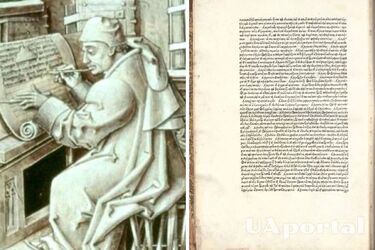Google of antiquity: scientists explain what a Greek encyclopedia is more than 900 years old

One of the monumental works among ancient works is the Judgment, a Byzantine treasure that dates back to the 1100s. Think of it as an ancient Google, a collection that served as a dictionary and encyclopedia of the Greek language and events of the time. Written in Greek, this giant book consists of 30,000 entries, revealing details of the ancient and Byzantine world.
Greek Reporter writes about it.
The term "Suda" is derived from the Byzantine word "souda," which means "fortress." Suda is a work between a grammar dictionary and a modern encyclopedia, exploring in depth the origins and meanings of words using the philology of its time.
Read also: Perfectly preserved remains of a man who died in the tsunami 3600 years ago found in Greece
The Suda is unique not only for its size but also for preserving information from lost ancient sources. It interacts with ancient works to create an invaluable chronicle of history. It is also known that the Suda combines fragments from various sources, including the encyclopedia of Constantine VII the Crimson and others.
The identity of Suidas, the author of the Suda, remains a mystery. He probably lived in the late tenth century, and there is little information about him. The Suda contains both Christian and pagan themes, indicating the author's Christian background. This text has become available to the world thanks to the Suda On Line project, which provides free access to a database with translations and additional information, making it a valuable resource for those studying Byzantine history and the medieval period.
As a reminder, the 30-kilometer-long Devil's Comet is approaching the Earth at a frantic pace.
If you want to get the latest news about the war and events in Ukraine, subscribe to our Telegram channel!
